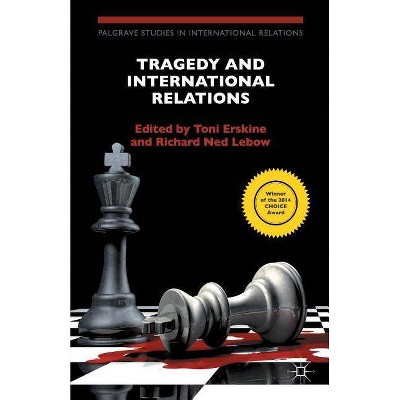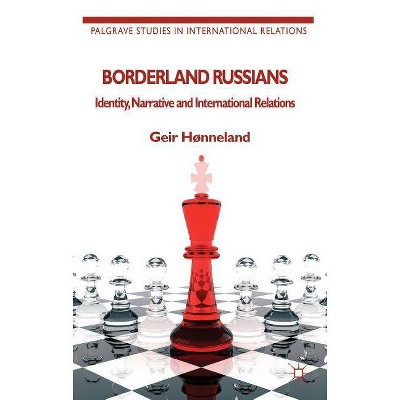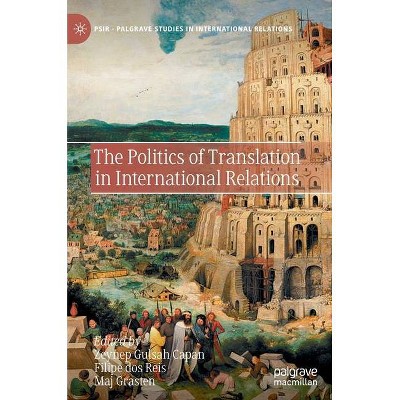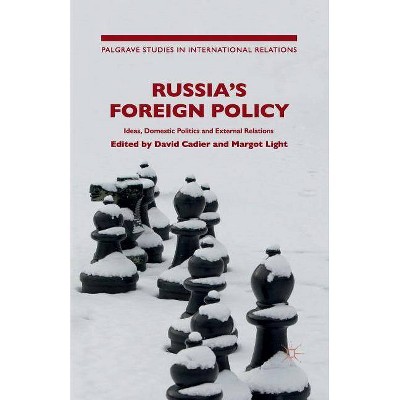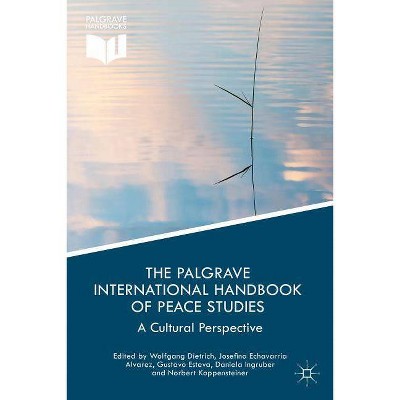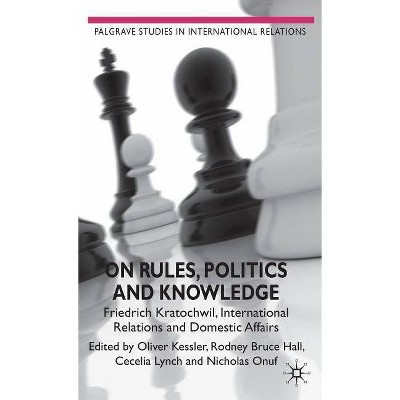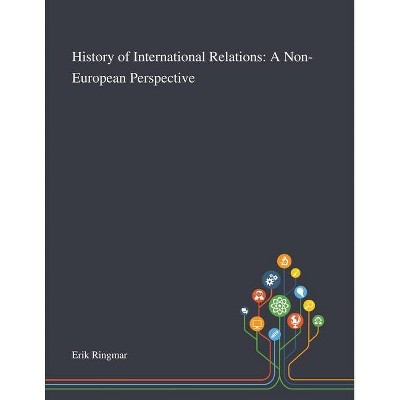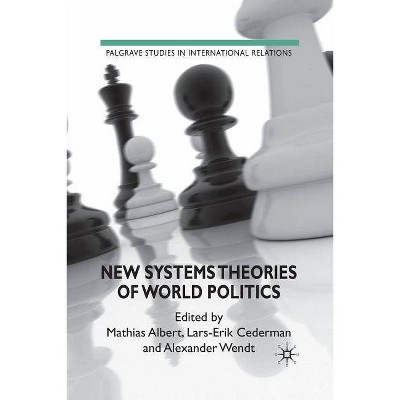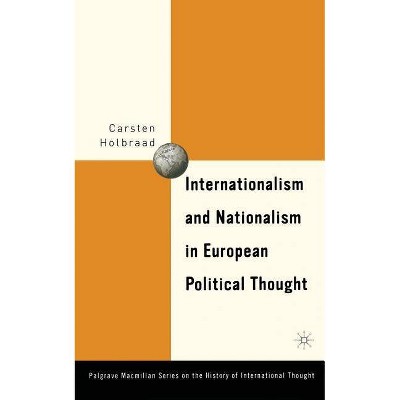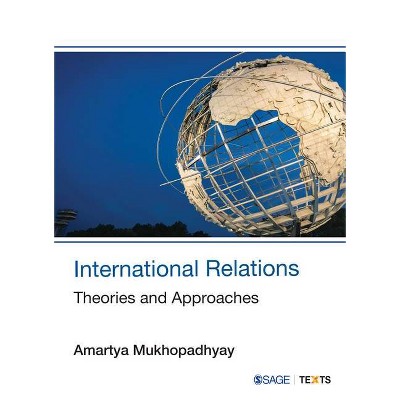Liberal Internationalism - (Palgrave Studies in International Relations (Paperback)) by B Jahn (Paperback)
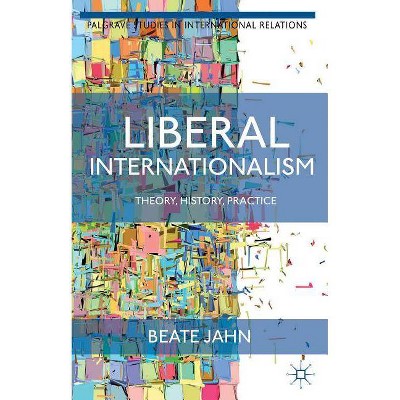
Similar Products
Products of same category from the store
AllProduct info
<p/><br></br><p><b> About the Book </b></p></br></br>"This book presents a radical intervention into the contemporary literature on liberalism, addressing the core problems surrounding liberal internationalism, explaining the disjuncture between liberal theory and practice and offering a firmer grasp on the historical role of liberalism in world politics. Despite the hegemonic position of liberalism after the end of the Cold War, liberal foreign policies like democracy promotion, humanitarian intervention and neoliberal economic policies widely failed to achieve their aims. This study provides a conception of liberalism that accounts for the successes as well as failures of these policies. It shows that the attempt to realize liberal principles in practice simultaneously generates nonliberal forces. This dynamic explains the tragic fate of liberalism in history: the moments of its greatest triumph give rise to its most serious crises. It suggests, therefore, that the main challenge for liberal foreign policies does not lie in confronting external threats but in designing policies that avoid internal fragmentation.Jahn opens up liberalism to the kind of focused debate and criticism that has hitherto been avoided, locating the core principles of liberalism and applying them to politics, economics, and ethics. This book will be an essential source to all scholars of international relations theory and liberal foreign policy. "--<p/><br></br><p><b> Book Synopsis </b></p></br></br>This book presents a radical intervention into the contemporary literature on liberalism, addressing the core problems surrounding liberal internationalism, explaining the disjuncture between liberal theory and practice and offering a firmer grasp on the historical role of liberalism in world politics. Despite the hegemonic position of liberalism after the end of the Cold War, liberal foreign policies like democracy promotion, humanitarian intervention and neoliberal economic policies widely failed to achieve their aims. This study provides a conception of liberalism that accounts for the successes as well as failures of these policies. It shows that the attempt to realize liberal principles in practice simultaneously generates nonliberal forces. This dynamic explains the tragic fate of liberalism in history: the moments of its greatest triumph give rise to its most serious crises. It suggests, therefore, that the main challenge for liberal foreign policies does not lie in confronting external threats but in designing policies that avoid internal fragmentation. Jahn opens up liberalism to the kind of focused debate and criticism that has hitherto been avoided, locating the core principles of liberalism and applying them to politics, economics, and ethics. This book will be an essential source to all scholars of international relations theory and liberal foreign policy.<p/><br></br><p><b> Review Quotes </b></p></br></br><br><p>'In this outstanding book, Beate Jahn synthesises a tremendously diverse literature into a crystal-clear immanent critique of the liberal vision and its consistent contradictions. Unlike most contributions that tend to partition the field of study, Liberal Internationalism weaves together past and present theorists and their applications of liberalism across political, economic and normative domains. Scholars of international liberal theory and practice proponents and critics alike will have to engage with this seminal treatise.'</p> <p>- Robbie Shilliam, Queen Mary University of London, UK</p> <p>'In clear and direct prose, Beate Jahn makes sense of our fragmentary experience of liberalism. She examines liberalism's political, economic, normative, and legal dimensions and then demonstrates how these seemingly disjointed elements emerge from a hidden contradictory foundation. Via a precise, parsimonious, and original excavation of John Locke's work, she constructs a comprehensive account of liberal internationalism. This book's scope, depth, and creativity make it a major intervention in the social theory of international relations.'</p> <p>- Naeem Inayatullah, Ithaca College, USA</p> <p>'This is a fine book, well-written and insightful, bringing new arguments into the debate about current liberal internationalism. The end of the Cold War was a great victory for liberal internationalism but the grand expectations on behalf of liberal progress have not been met. Against this background Beate Jahn concisely clarifies the theories and practices of liberalism. The book is a must for everyone interested in understanding liberal world order and its basis in liberal theory, history, and practice.'</p> <p>- Georg Sørensen, University of Aarhus, Denmark</p><br><p/><br></br><p><b> About the Author </b></p></br></br>Beate Jahn is Professor of International Relations at the University of Sussex, UK as well as the Editor of EJIR and Director of CAIT. Her publications include The Cultural Construction of International Relations (Palgrave Macmillan, 2000), Classical Theory in International Relations (2006) and Critiquing Liberalism, a special issue of JIRD (2012).
Price History
Price Archive shows prices from various stores, lets you see history and find the cheapest. There is no actual sale on the website. For all support, inquiry and suggestion messages communication@pricearchive.us
